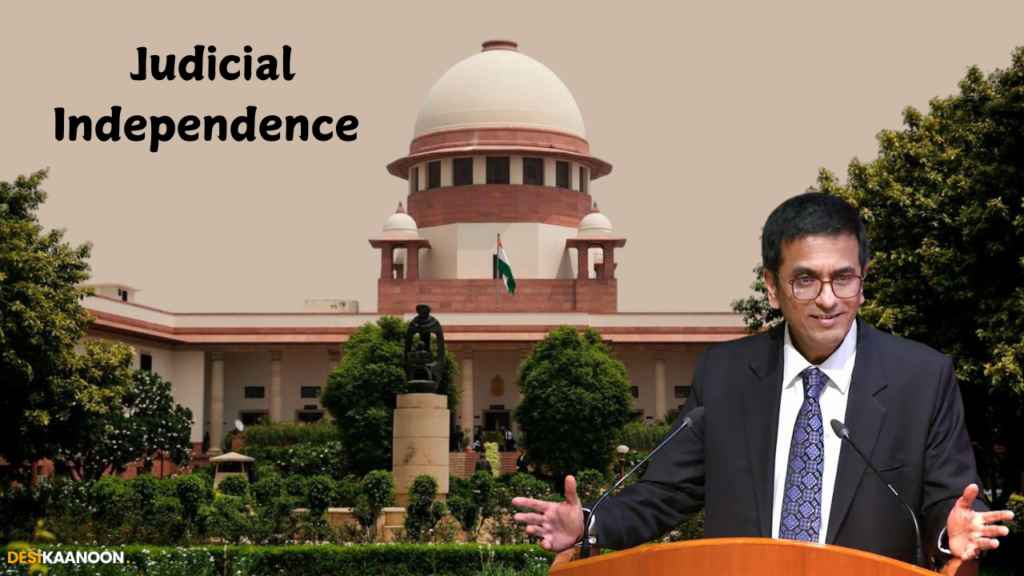Aastha Pareek
In a recent address, Chief Justice of India DY Chandrachud provided clarity on the concept of judicial independence, stating that “the independence of the judiciary does not mean always delivering verdicts against the government.” Speaking at an event hosted by the Indian Express group, he argued that independence should allow judges to render decisions based on conscience and legal principles, irrespective of whether the verdicts align with or oppose governmental interests. He emphasized that true judicial autonomy lies in the “independence to decide what their conscience tells them,” guided by the law and the Constitution, without external pressures from the government or social forces.
In an era where public perception often questions the impartiality of judicial rulings that favor the government, CJI Chandrachud expressed concern over pressure from various interest groups, especially those leveraging electronic and social media. He remarked, “There are pressure groups trying to get favorable verdicts by putting pressure on the courts by using electronic media.” He took issue with the notion that the judiciary is labeled independent only when decisions oppose the government, calling it an “objectionable” viewpoint. Chandrachud cited the example of his own decision on the controversial issue of electoral bonds, noting that while his ruling was praised as independent when it contradicted government interests, similar responses were not offered for rulings that did not.
The CJI also touched on the judiciary’s logistical relationship with the government. Although judges exercise autonomy in their judicial functions, Chandrachud recognized the need for government partnership in areas like court infrastructure and budgeting, stressing that these requirements for resources do not impinge on the judiciary’s independence. This balance, he asserted, helps maintain the efficacy of the judicial system while upholding its core integrity and impartiality.
As he approaches the conclusion of his tenure, CJI Chandrachud’s remarks serve as a powerful reminder of the judiciary’s dual commitment: to maintain independence in its verdicts while cooperating practically on structural needs. His perspective reaffirms a commitment to justice that transcends political pressures, embodying the judiciary’s role as a pillar of democracy.

